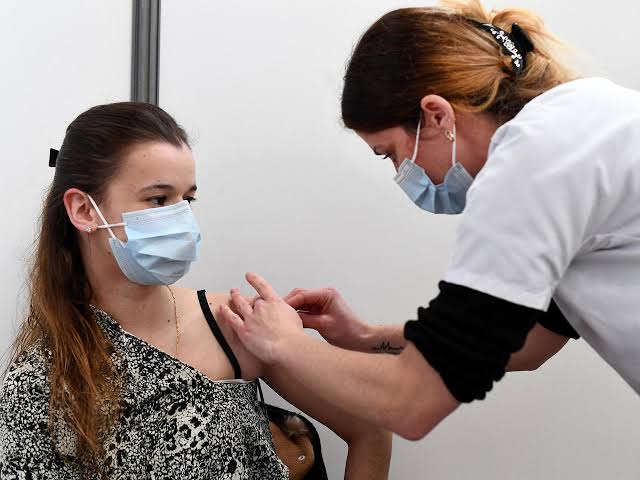LONDON – The daily pace of Covid vaccinations has increased in about a dozen countries due to the arrival of the more contagious Delta variant and governments expanding their vaccination drives, a data analysis by Reuters found.
The Netherlands, Norway, Portugal, Saudi Arabia, Singapore and Spain are all vaccinating at their fastest speed to date. Belgium, Denmark, Finland and Sweden are not far behind.
In many countries, vaccination drives slowed before reaching 70 per cent or more of the population – a threshold some experts say could help largely curb Covid-19 transmission through so-called herd immunity, when combined with people who developed immunity following an infection.
The ability of the coronavirus to mutate quickly into new variants, such as Delta, that reduce the effectiveness of vaccines has cast doubt on whether herd immunity can be achieved. However, various governments have still set national vaccination goals close to that number to encourage citizens to get inoculated. The European Union, for instance, has distributed enough vaccines for 70 per cent of its population.
In some places, regulators have just recently authorised use of the shots in 12 to 15 year olds; in others, supply is catching up with demand.
Many of those countries had initially focused on giving shots to older populations and other high-risk groups. The Pfizer/BioNTech vaccine has been authorised by the US and European Union for people aged 12 and over, but others such as AstraZeneca are only available to adults.
With the spread of the Delta variant, countries are trying to reignite their campaigns by overcoming skepticism about the vaccine and misconceptions that the young do not need a shot.
Heidi Larson, director of the international Vaccine Confidence Project and a professor at the London School of Hygiene and Tropical Medicine, said a rise in vaccinations due to Delta variant concerns may have been held back by changes seen as signalling an end to the pandemic, such as lifting mask mandates and travel bans.
“A deceleration of vaccination in itself is a logical phenomenon,” said Vincent Marechal, a senior virologist with France’s Sorbonne University. But slowing down too early opens the door to the virus spreading – mostly among children – and evolving to become more dangerous for them.
Portugal, where the Delta variant accounts for more than 90 per cent of cases, has the highest number of new cases in the European Unions since mid-June. It has also doubled its pace of vaccinations from a low of around 60,000 inoculations per day, in part by including 18 to 29 year olds.
In Britain, where 87 per cent of adults have received at least one dose of Covid-19 vaccine, the government stepped up its target to have all adults vaccinated by July 19, when its Covid restrictions are slated to be lifted. It has begun giving second shots sooner as well to fight the Delta variant.
In France, where 53.3 per cent of the adult population has received one dose of a vaccine and 41.3 per cent two doses or a single-dose shot, authorities are ramping up outreach to those who have not made vaccination appointments.
“We are indeed hitting a glass ceiling and trying to come up every day with ideas, and the good news is we are seeing a very recent pick up in bookings,” a source close to the health ministry said last week.






Discussion about this post